Iran Considered Importing Radioactive Chickens Despite Health Risk
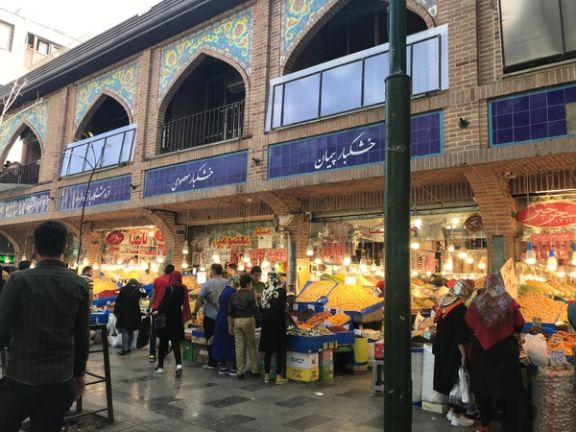
Iran intended to import radiation-contaminated chickens from Belarus despite the risk to the public, an official document reveals.

Iran intended to import radiation-contaminated chickens from Belarus despite the risk to the public, an official document reveals.
The disclosure comes in a "very confidential" letter from the Ministry of Agriculture published on Friday by Nariman Gharib, an internet researcher.
The document was addressed to Peyman Pak, Deputy Agriculture Minister, and was signed by Mohammad Ali Nasiri, Advisor to the Minister and Head of the Security of the Agriculture Ministry on May 10.
In the letter, Asiri admits that due to the radioactive contamination in parts of Belarus after the Chernobyl tragedy, the import of chicken from the country is banned.
In a tweet, Gharib said it means that the Islamic Republic intended to import chickens from Belarus to control the market but in fear of political and health consequences, the import from Belarus was stopped.
The letter also expressed concern about the disclosure of the issue in the Farsi-language media abroad.
It stated that “chicken contaminated with radioactive substances may lead to specific diseases and risks caused by the production of food with contaminated raw material.”
Earlier this year, Iran and Belarus agreed a deal on agricultural cooperation, under which the former Soviet state sends products including poultry, grain and dairy supplies.
This is not the first time the Islamic Republic has imported or intended to import contaminated food. Two years ago, ISNA news agency reported that about five thousand tons of livestock feed contaminated with aflatoxin had been imported but stopped at customs.
Jalal Mahmoudzadeh, a lawmaker, said on Saturday that in the past year three million tons of wheat was imported from Russia, which was highly contaminated with lead.
He said it was not possible to stop the shipments but that they were mixed with stored wheat to lower the overall lead level.
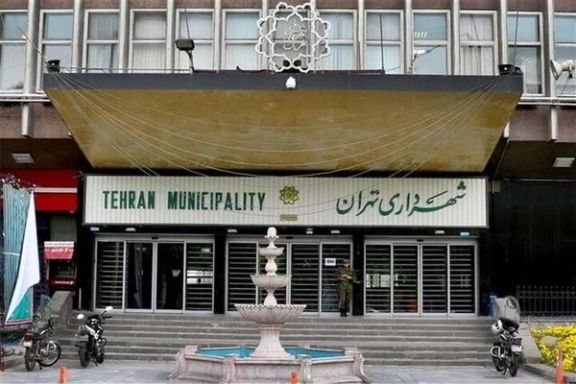
A member of Tehran City Council says financial irregularities worth nearly 400 million dollars have been reported in Tehran municipality.
Nasser Amani said on Friday that the mayor of Tehran, Alireza Zakani has approved such a corruption in a press conference.
There are no details about the sector in which this irregularity has happened or who has been behind it. However, in his press conference earlier this month Zakani refused to announce any names saying that he is only interested in fighting against corruption.
“One of the amounts we want to get back is 400 million dollars. We do not hesitate to take back the rights of the people,” said Zakani during his press conference on May 1.
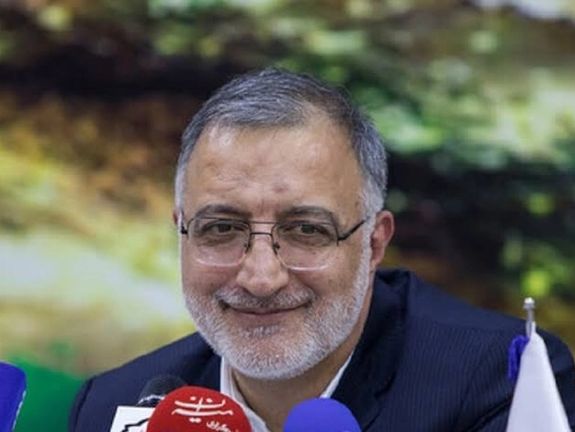
Within the past weeks, there were several reports on the arrest of people close to Zakani in his office, however the ultra-conservative mayor of Tehran tries to blame the previous government for being behind the corruption.
“The financial corruption of several employees of Tehran municipality were discovered with the admirable vigilance of security organizations, and the case was sent to the judicial authorities," claimed the Municipality Spokesman Abdol-Taher Mohammadkhani earlier this month.
Tehran municipality is known for corruption cases. A large-scale corruption was revealed during the mayoral tenure of Mohammd Baqer Qalibaf (Ghalibaf) who is currently the country’s parliament speaker.
His successors claimed that more than $5 billion was misappropriated or wasted during Qalibaf’s term as mayor from 2005 to 2017.
Qalibaf has been accused of financial corruption a few times over the last decades. But the cases have been dismissed without being investigated, with observers attributing this to his relationship with Supreme Leader Ali Khamenei.
Last year, a leaked audio file of IRGC commanders discussing massive financial corruption involving Parliament Speaker Mohammad-Bagher Qalibaf raised a storm in Iran.
The 50-minute audio-file includes a conversationbetween the former IRGC Commander Mohammad-Ali Jafari and his Economic Affairs Deputy Sadegh Zolghadr in 2018 about corruption involving IRGC's Qods Force and Tehran municipality headed by Qalibaf.
The discussion in the recording directly involved Qalibaf, former Qods Force Commander Ghasem Soleimani, IRGC Coordination Deputy Jamaloddin Aberoumand, and Chief of the IRGC Intelligence Organization Hossein Taeb in covering up the embezzlement of 80,000 billion rials (around $3 billion at the time) between Tehran municipality and a firm controlled by the IRGC.
The money was mainly intended for funding the activities of Qods Force but somehow disappeared in the dealings between the municipality and Yas Holding, a subsidiary of IRGC's Cooperatives Foundation active in services, dealership, and subcontracting in the housing sector.
Yas Holding was officially dissolved in 2018, two years after its establishment, following the arrest of some of its officials. Four of the accused, including Qalibaf's deputy in Tehran municipality, Isa Sharifi, were put on trial and were sentenced to long prison terms and returning some of the huge sums they had embezzled.
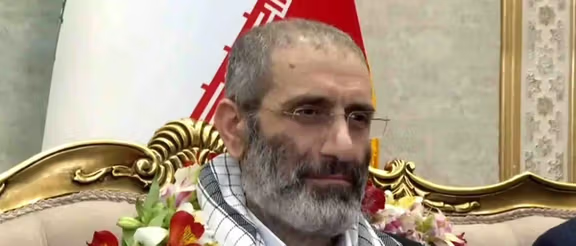
Activists are outraged over an Oman-brokered swap deal according to which Iranian diplomat convicted of terrorism was freed in exchange for a Belgian hostage.
Asadollah Assadi, a former attaché at the Iranian embassy in Austria who was convicted of plotting to bomb a gathering of the exiled opposition group Mujahedin-e Khalq Organization (MEK) near Paris on June 30, 2018, was released and arrived in Tehran on Friday.
Belgian aid worker Olivier Vandecasteele, who was detained in 2022 and sentenced to 40 years in prison and 74 lashes for alleged “spying and cooperation with the United States, money laundering and smuggling $500,000 out of Iran,” was also released as part of the deal.

The Belgian Parliament ratified the controversial prisoner swap treaty with Iran on July 20, but a temporary ban on the extradition of the convicted diplomat was announced by the Brussels Court of Appeal late in July following numerous complaints.
The critics of the accord warned that such a treaty would effectively establish Belgium as a “sanctuary country” for terrorist operations, and a haven for Iranian intelligence services to maintain a European command center. In March, Belgium's Constitutional Court rejected a request to annul a prisoner exchange treaty with the Islamic Republic paving the ground for the release of the diplomat.
Iranians and human rights activists feel betrayed and disappointed that Belgium released Assadi after huge rallies and and dozens of officials warning against such an act. Following his release, Iranian expatriate communities held protests in several cities to denounce Belgium's move to free the regime's diplomat.
Rights group Amnesty International said in a statement that "By transferring Assadollah Assadi to Iran, the Belgium government has contributed to a climate of impunity for the extraterritorial targeting of Iranian dissidents for extrajudicial execution, torture, and other ill-treatment, and undermined the rights of victims to justice, reparations and guarantee non-recurrence of violations."
In an interview with Iran International on Friday evening, Darya Safai, an Iranian-born member of the Belgian Parliament, described the day as “a black and bitter day for impunity and injustice for Iran and the world.”
“The Islamic Republic of Iran takes innocent people as hostages, blackmails, plans terror attacks on European soil, kills brave freedom fighters in Iran and yet the world continues to grovel and do as they demand,” she said, adding that “This regime will never stop capturing victims if it is rewarded in this way without a problem.”
According to the lawmaker, the Belgian government was supposed to inform the plaintiffs in Assadi's case before releasing him, but it did not do so.
Alireza Akhondi, an Iranian-born member of the Swedish parliament who has been very active in defending the ‘Women, Life, Liberty’ movement, also told Iran International that it is a shameful day in history.
He mentioned several names of the iconic martyrs of the uprising who have lost their lives in the path of Iran’s freedom, saying that such an event proves that the opposition should expand its efforts to make the world stand against this regime, which has been using the hostage-taking tactic for 44 years.
Reacting to the release of Assadi, exiled Prince Reza Pahlavi said that exchanging hostages for the regime’s terrorists “will not only fail to end the Islamic Republic’s hostage taking, but it will also encourage the regime to take further hostages and carry out further acts of terrorism.”
Pahlavi added that during his meetings with European lawmakers and politicians, he made it clear that the only solution lies in coordinated action from a position of strength. He called on world countries to “recall ambassadors from Tehran and expel the regime's ambassadors; Put the IRGC on the list of terrorist organizations; Help the people of Iran achieve the freedom and democracy that they deserve and are sacrificing for.”
The National Council of Resistance of Iran, an organization parallel to MEK and led by its leader Maryam Rajavi, which had mounted a fierce campaign against the deal, issued a statement following the prisoner swap, condemning it as a shameful appeasement with the Islamic Republic’s policy of hostage taking.
“The release of the terrorist, who organized and commanded the biggest criminal act in Europe after the Second World War, by violating the Court’s order, is a shameful ransom for terrorism and hostage-taking. This will embolden the religious fascism ruling Iran to continue its crimes in Iran through repression and regional and international terrorism,” read their statement.
The group added that “The release of this terrorist diplomat takes place while the Constitutional Court had clearly stated in its judgment that the Belgian government should inform the victims before transferring the convicts so that they have the opportunity to once again take the issue to court.”
The Islamic Republic has a long history of hostage diplomacy, which started soon after the establishment of the regime, with taking hostage American diplomats and embassy staff in 1979 for 444 days. UN experts and international human rights organizations say that the Islamic Republic takes foreigners hostage to extract concessions from the West.
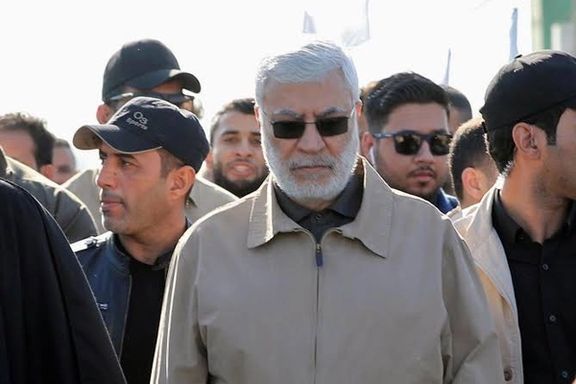
The Muhandis Company in Iraq is going to model the Revolutionary Guard’s engineering arm with the support of the Islamic Republic.
According to information obtained by Iran International, the Islamic Republic has gained the permits for the establishment of the company in exchange for its support for Iraqi Prime Minister Mohammed Shia' Al Sudani to win the office.
The Muhandis General Company (Sharakat al-Muhandis al-Amma) takes its name from Abu Mahdi al-Muhandis, the former deputy commander of Iran-backed Shiite militia Hashd al-Shaabi -- also known as the Popular Mobilization Forces (PMF) -- and a close comrade of former IRGC’s extraterritorial Quds force commander Qasem Soleimani. They were killed together in January 2020 by a US drone strike.
Muhandis was himself a graduate of civil engineering and in the late 1970s joined the Islamic Dawa Party, which fiercely opposed the Baathist government of Iraqi autocrat Saddam Hussein and led an insurgency against him during the Iran-Iraq war.
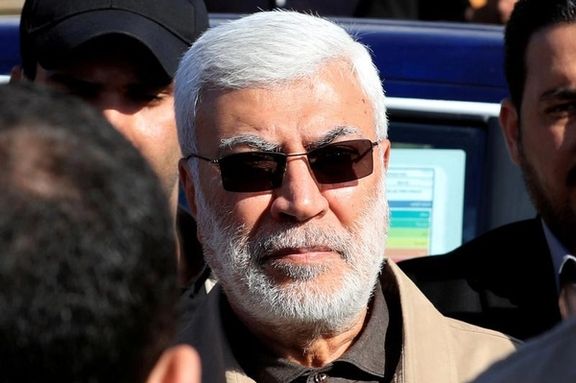
According to our sources, the establishment of the company and its growing sway in Iraq’s construction projects has led to the opposition of the Iraqi army and even the Shiite leaders in Najaf. Influential Iraqi Shiite cleric Muqtada al-Sadr -- who seeks to curb the influence of the Islamic Republic of Iran in Iraqi politics – has once and again called against an Iranian-linked government or a subordinate one in Baghdad.
The Muhandis company seeks to become the Iraqi version of Khatam al-Anbiya Construction Headquarters, IRGC’s engineering and contracting arm. Khatam al-Anbiya Construction Headquarter is one of Iran's largest contractors in industrial and development projects. The IRGC business conglomerate was created during the 1980–1988 Iran–Iraq War to help rebuild the country and has diversified over the years into companies dealing with mechanical engineering, energy, mining, and defense.
Earlier in May, London-based pan-Arab website Al-Araby Al-Jadeed reported that Al-Muhandis company is increasing its work in the field of contracting and infrastructure in the private and public sector through several projects in the capital Baghdad and several other cities, describing it as the Islamic Republic’s effort to create “a parallel state” inside Iraq.
The report claimed that via its growing network, the company aims to provide financial resources to support Hashd al-Shaabi and its affiliated armed factions.
“Some see the establishment of the company as an attempt to replicate the experience of the Revolutionary Guard in Iran, aimed at controlling economic and commercial sectors in Iraq, towards building a parallel economy, under the management of the Popular Mobilization Forces, which gives the group financial independence,” claimed the report.
According to the report, the company was established in November 2022 with a capital of 100 billion dinars ($68.5 million) and it is exempt from paying any taxes.
In March, US-based think-tank The Washington Institute for Near East Policy reported that the company launched its inaugural project -- a commitment to plant one million trees in a large parcel of government-provided land in al-Muthanna province. It said: “The launch event was attended by both PMF chairman Faleh al-Fayyad, a US-designated human rights abuser, and PMF chief of staff Abdul-Aziz al-Mohammadawi (aka Abu Fadak), a US-designated terrorist.”
The think-tank added that Iraqi 'resistance' groups – affiliated with the Islamic Republic -- have long sought a company “with preferential access to lucrative state contracts, and the Sudani government is finally providing them after years of opposition.”
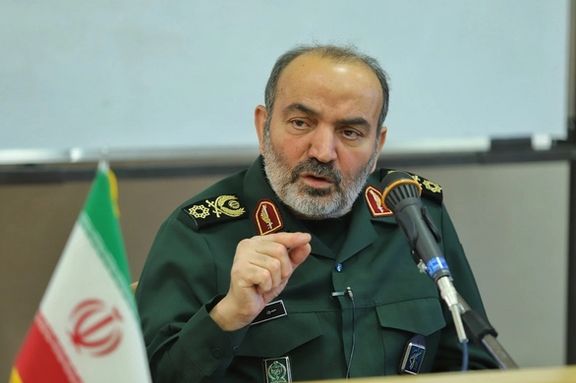
The United States has given up the military option against Iran, a senior Revolutionary Guard official was quoted as saying by local media on Friday.
Gen. Hossein Daqiqi (Daghighi), top advisor to IRGC’s chief commander, during a speech Thursday evening said that the US not only has given up on the military option but might also relinquish sanctions and economic pressure soon against the Islamic Republic.
“The military option has been taken off the table by the Americans, but economic and cultural pressures are still active, although the economic option is also on its way out,” Daqiqi said, “because they believe that sanctions have not been effective.”
The IRGC official also said that “If a country has all the military hardware in the world, but its leader is a coward like Trump, it won’t be able to accomplish anything.” He added that in contrast, Islamic Republic’s leader Ali Khamenei ordered a missile strike against US bases in Iraq after the killing of IRGC’s Qassem Soleimani in Baghdad by a US air strike.
US President Joe Biden and his senior officials have reiterated several times in recent months that all options are on the table not to allow Tehran to possess nuclear weapons, and they have designated more companies and individuals for violating US sanctions.
Congressional and other critics of President Biden’s Iran policy say the administration has not rigorously implemented oil export sanctions imposed by former President Donald Trump when he withdrew from the JCPOA nuclear deal in 2018.
Iran began to increase clandestine oil shipments to China at the end of 2020 as Biden won the presidential election and signaled his readiness to overturn Trump’s decision and revive the JCPOA.

Tehran is using the Caspian Sea to transfer suspected weapons cargos to Moscow, CNN reported on Friday.
CNN quoted experts as saying that as cooperation between the two countries deepens, the Caspian Sea route is being used to move drones, bullets, and mortar shells that the Russian government has purchased from Iran to use in Ukraine.
“Tracking data shows that vessels in the region are increasingly going dark – suggesting growing intent to obfuscate the movement of goods,” the US news channel claims.
Data from Lloyd's List Intelligence revealed a spike in Caspian vessel tracking gaps in September last year.
The US and Ukrainian governments claim Moscow acquired drones from Tehran last summer. The use of Iranian drones by Russia increased in the fall, including against critical energy infrastructure in Ukraine.
It is unlikely that Ukraine's Western allies could stop such arms deliveries, analysts told CNN.
“There is no risk to Iranian exports in the Caspian Sea because of the bordering countries – they don’t have the capability or motive to interdict in these sorts of exchanges,” said Martin Kelly, lead intelligence analyst at security company EOS Risk Group.
Back in April, The Wall Street Journal reported that Iran has shipped over 300,000 artillery shells and about a million rounds of ammunition to Russia using cargo ships in the Caspian Sea; something that Iran denied saying That Tehran is opposed to war and supports a ceasefire and peace in Ukraine.
Officials in the Middle East had told the WSJ that the last shipment of weapons to Russia crossed the Caspian Sea aboard the 460-foot Russian cargo ship Rasul Gamzatov in early March. The company owning the vessel had already been sanctioned by the US.